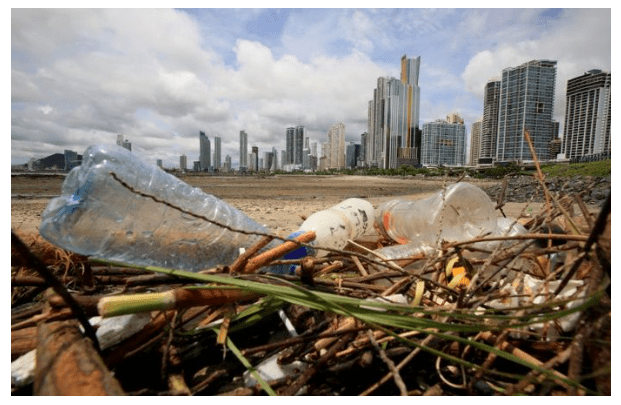Summary by Martin Mowforth from report by El Economista
2 October 2019
Key words: recycling; incentives; plastics; Bay of Panamá.
On 2 October, El Economista reported that the government of Panamá was looking for ways of incentivising recycling. Speaking at an international symposium on sustainability organised by the Industrial Union of Panamá, the Environment Minister Milciades Concepción said that recycling by industry is practically nil: “Here we can’t set up recycling plants because there are no incentives,” he declared.
According to official figures the Bay of Panamá receives 175,000 tonnes of waste each year, much of which is composed of plastics. The Director of Urban and Household Hygiene Pedro Castillo said that “on recycling we are years behind.”
Cerro Patacón is the main landfill dump for the city of Panamá and the 150 informal recyclers who work there find the collection of plastic material to be less attractive than the collection of other materials because of the low demand for plastics.
The United Nations Environment Programme calculates that in Latin America only 10 per cent of all waste material generated is recycled, and that this rate is lower in areas of poverty. UNEP also estimates that each year 8 million tonnes of plastic reach the sea, and that if this continues, by 2050 there will be more plastics in the oceans than fish.
